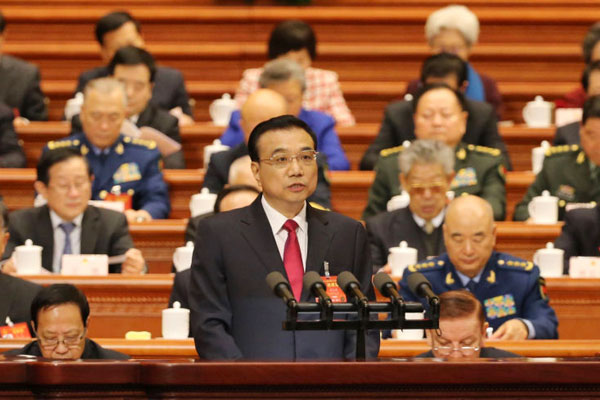
Premier Li delivers the Government Work Report during the opening meeting of the fifth session of China’s 12th National People’s Congress (NPC) in Beijing, capital of China, March 5, 2017.
As Premier Li Keqiang delivered the Government Work Report during the two sessions, a survey was underway gauging Chinese people’s “sense of benefit” from various government measures outlined in the report.
The survey of 570,000 people, conducted by China’s Central Television, showed that 55.3 percent of respondents anticipated that their income would grow in 2017, and 13.5 percent expected household income to go up by more than 20 percent.
The proportion of respondents that believe China will maintain high-growth in household income reached at its highest in the past five years.
Meanwhile, a higher proportion of low-income people felt a sense of benefit in 2016 than in 2014, and over half of rural respondents believed that their income will increase in 2017.
The income confidence index was high in Qinghai, Tibet and other targeted areas for poverty alleviation, according to the survey.
The post-90s generation made up the largest proportion of those who expected their income to grow by more than 20 percent, as the mass entrepreneurship and innovation initiated by the Premier last year opened up new channels for young people to realize their dreams.
Those who are considering starting their own businesses also tended to expect higher income than those without entrepreneurial intentions.
In a separate analysis based on big data, the most applauded achievements listed in the Government Work Report were the daily growth of 45,000 various types of market players, 3.8 million renovated units replacing dilapidated rural houses, and Shanghai-Hong Kong Stock Connect.
The analysis showed that 98.7 percent of netizens appreciated the part that reviewed government work in 2016, with all 32 goals laid out in last year’s Government Work Report achieved.
The big data report also showed that almost everyone gave a thumbs up to the news that 45,000 new market players emerged every day, and was satisfied with the performance on infrastructure and renovation of dilapidated houses.
